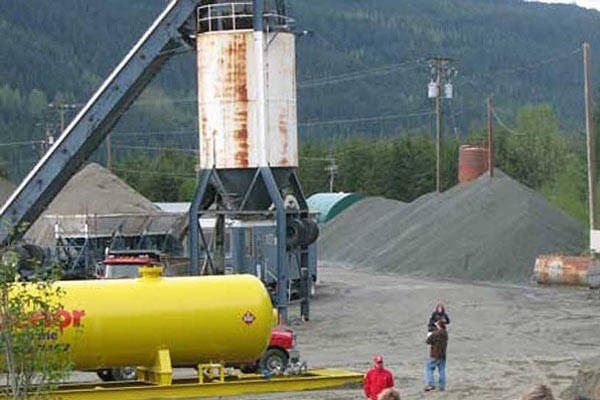What a winter season it has been.
The snow and all the winter sports that drive our passions have made for an unforgettable few months.
But I would argue that most of the Sea to Sky is ready for spring... and maybe even summer.
For residents of the Cheakamus neighbourhood, the end of winter also means the paving season is drawing near, which in turn means that Whistler Aggregates, operator of Alpine Paving, is getting ready for its busy season.
For now, the plant is operating on a month-to-month basis until the Ministry of Forests, Lands and Natural Resource Operations (MFLNRO) makes a final decision on its renewal. The lease on the land ran out this year.
Preliminary results from last year show the air quality at Cheakamus was always well within provincial regulations.
But this reassurance does little to dampen the neighbourhood's position that it's time for such a heavy-industrial operation to move somewhere else.
There is no doubt that Whistler Aggregates owner Frank Silveri has been operating on the land in good faith for decades — and has provided a much-needed service to the resort.
But these days, the plant provides no asphalt for the Resort Municipality of Whistler (RMOW) as regulations state that all paving material must come from a plant more than three kilometres away from any Whistler neighbourhoods.
Last year, Alpine Paving was paid $385,000 by the RMOW for work mostly on the Valley Trail. All the asphalt was trucked from Squamish.
The 2017-2021 proposed budget has $2.37 million pegged for paving — $1.65 million of that in 2017 — and the tendering process is already underway. It's expected that the contract for the 2017 work will be awarded at the May 23 council meeting.
And, as per the regulations, none of the asphalt can be manufactured at the Cheakamus location of Whistler Aggregates.
Time has changed the face of Whistler and the forested area surrounding Silveri's operation has become home to 800 residents and numerous recreational activities — and more housing is planned in the area as the municipality works to alleviate the town's housing crisis.
It's time for the plant to relocate to an area more suitable to industrial operations.
The fractious relationship between residents of Cheakamus and Whistler Aggregates dates to the development of the new $161-million neighbourhood, which was occupied by residents at the end of the 2010 Winter Olympic and Paralympic Games.
The neighbourhood, which was built to house athletes and others associated with the Games, is considered by many to be one of the most important legacies of the mega event.
Those who bought the homes had a sort of community understanding that the asphalt plants and gravel pit would be phased out over time — but there was no such formal agreement and, in fact, Whistler Aggregates has been legally allowed to operate there, as it has done since the mid-'80s, supplying paving and other materials to the municipality and others in contracts worth millions of dollars.
Since the Games, council and Mayor Nancy Wilhelm-Morden have been looking for a mutually acceptable way to stop the operation of the paving plant, though it has every legal right to be there — a position that was upheld in B.C. Supreme Court in 2011. By 2012, the RMOW had spent $600,000 in legal costs associated with the asphalt plant.
For his part, Whistler Aggregates owner Silveri feels he has been the target of a campaign to stop a perfectly legal operation — one that has served the resort well at a fair price.
In 2011, as the municipality struggled with how to curb the asphalt plant's operation, council decided to change the wording of its paving-tender projects contracts to say that the asphalt could not be produced within the municipal boundary, in essence barring Alpine Paving from the process unless its bid was based on material produced at its Squamish plant.
This resulted in the RMOW having to pay $55,000 more of taxpayers' money for that year's paving to compensate Alpine Paving for the transport of the material. In 2014, that extra cost was $60,000.
This week, the ministry told Pique that with an election looming on May 9, it can't share information on what the final decision will be regarding the lease renewal for the asphalt plant, nor would it give a timeframe for its decision.
It has received 52 emails and letters regarding the process.
One of those came from Mayor Wilhelm-Morden.
"... The RMOW urges the Province to decline renewal of this application in light of the significant change in the circumstances and the urgent need for housing."
Failing this, the RMOW is asking that only a one-year extension be given so that the parties can work together to relocate the asphalt plant.
Here's hoping the province listens to its most successful resort and all parties can work together to move this industrial venture out of what is today one of Whistler's most popular neighbourhoods.




